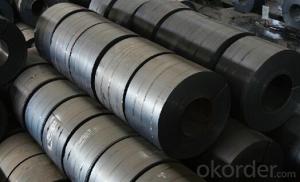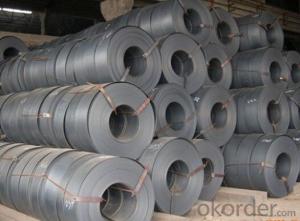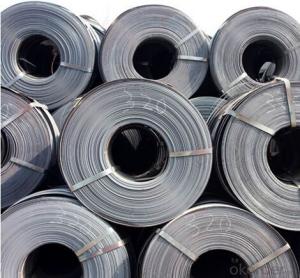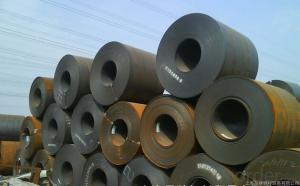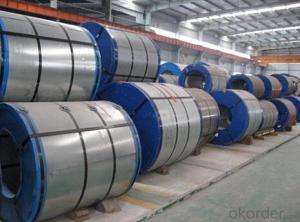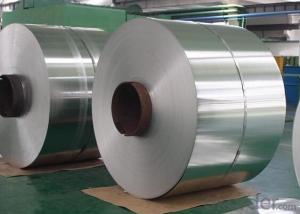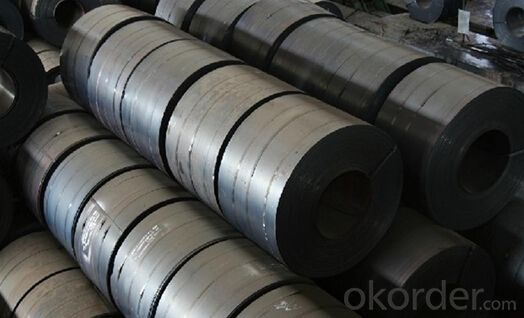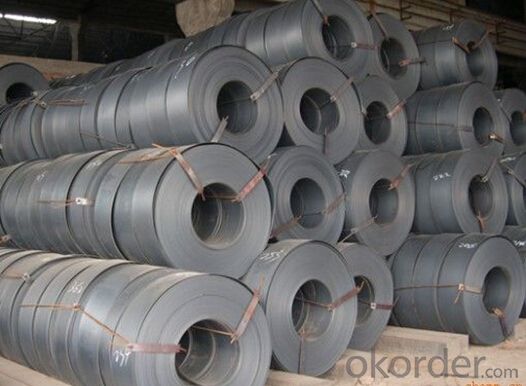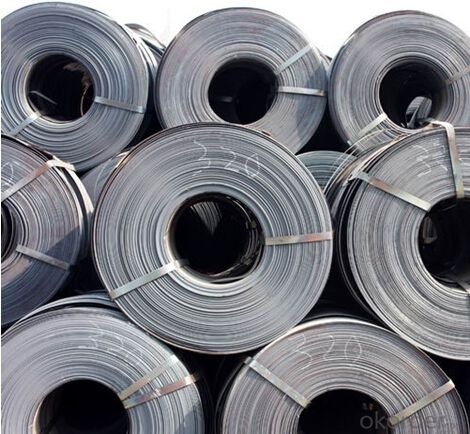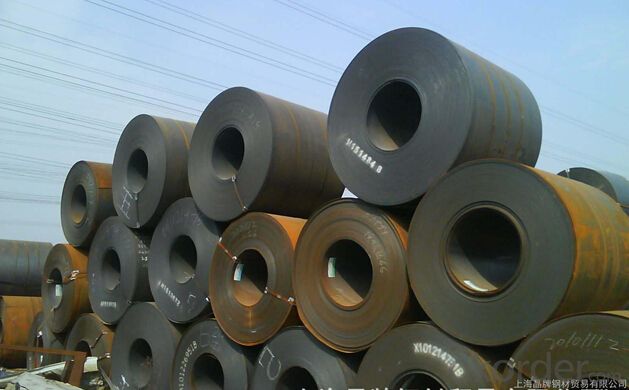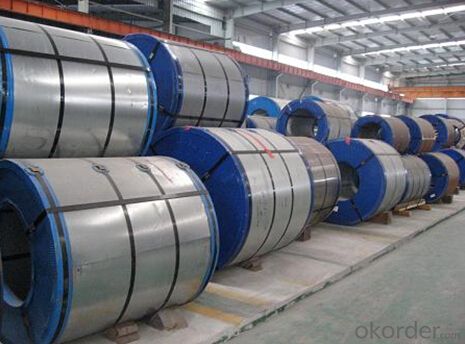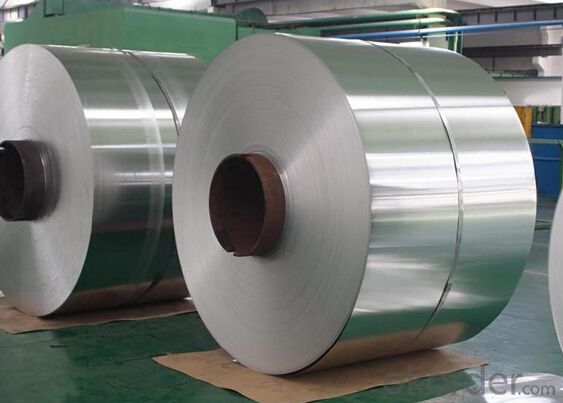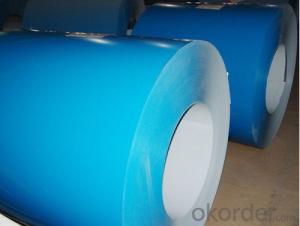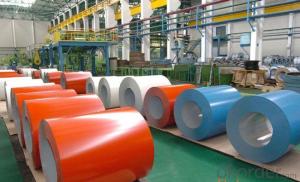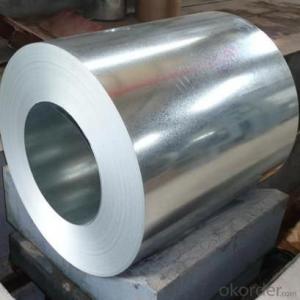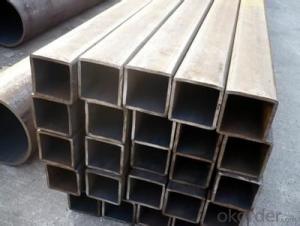Cheaper Price HR Steel Coil S235JR_Strips with High Quality
- Loading Port:
- Tianjin
- Payment Terms:
- TT OR LC
- Min Order Qty:
- 25 m.t.
- Supply Capability:
- 10000 m.t./month
OKorder Service Pledge
OKorder Financial Service
You Might Also Like
Specification
Cheaper Price HR Steel Coil S235JR_Strips with High Quality
Quick Details
Name | Hot Rolled Steel Coil |
Standard | GB/ASTM/SAE/AISI/DIN/JIS/EN/BS |
Surface Treatment: | Black/Peeling/Polished/Machined |
Delivery Condition: | Hot Rolled or Forged/Peeled or Black Surface |
Test | SGS/UT 100% Elements Testing |
Certificate: | ISO/Mill Certificate |
Service: | 24 hours online service / |
more than 20 years trading and manufacture | |
Quality Assurance: | the third party inspection, such as SGS, BV, TUV…etc. is acceptable |
Packaging Details: | Seaworthy Packaging or as per customer's packing instruction |
Specification
Standard | AISI, ASTM, BS, DIN, GB, JIS |
Grade | Q235B Q345B SS400 ST37 ST52 ASTM A283 GR.50 GR65,X70 ,S235JR ,S355JR ,A36 NM360 NM400 NM450 NM500 and so on |
Thickness | 1.5-400mm |
Brand Name | WISCO ,Tisco ,Hebei mill ,Shandong mill |
Model Number | Q235B Q345B SS400 ST37 ST52 ASTM A283 GR.50 GR65,X70 ,S235JR ,S355JR ,A36 NM360 NM400 NM450 NM500 and so on |
Type | Steel Plate/coil ,hot rolled steel plate/coil ,heavy plate ,hot plate ,hot rolled plate ,plate for sturcutual steel |
Technique | Hot Rolled |
Surface Treatment | in quenched an Q235B Q345B SS400 ST37 ST52 ASTM A283 GR.50 GR65,X70 ,S235JR ,S355JR ,A36 NM360 NM400 NM450 NM500 and so on d tempered deliverd condition |
Application | construction machine/ Buildings, Bridges, and cars and so on |
Special Use | High-strength Steel Plate/abrasion steel/wear resistant steel/anti-corrosion steel plate/hot rolled steel coils |
Width | 600-4300MM |
Length | 3000-12000MM up |
color | gray or red or mill |
Company Information
CNBM International Corporation is the most import and export platform of CNBM group(China National Building Material Group Corporation) ,which is a state-owned enterprise, ranked in 270th of Fortune Global 500 in 2015.
With its advantages, CNBM International are mainly concentrate on Cement, Glass, Iron and Steel, Ceramics industries and devotes herself for supplying high quality series of refractories as well as technical consultancies and logistics solution.
After-sale service | l CNBM provides the services and support you need for every step of our cooperation. We’re the business partners you can trust; you can relax and get on with doing business. |
l For any problem, please kindly contact us at any your convenient time, we’ll reply you in our first priority within 24 hours | |
Advantages | Industry experience over 20 years. |
Shipment of goods -More than 70 countries worldwide. | |
The most convenient transport and prompt delivery. | |
Competitive price with best service. | |
High technical production line with top quality products. | |
High reputation based on best quality products. |
Product Show
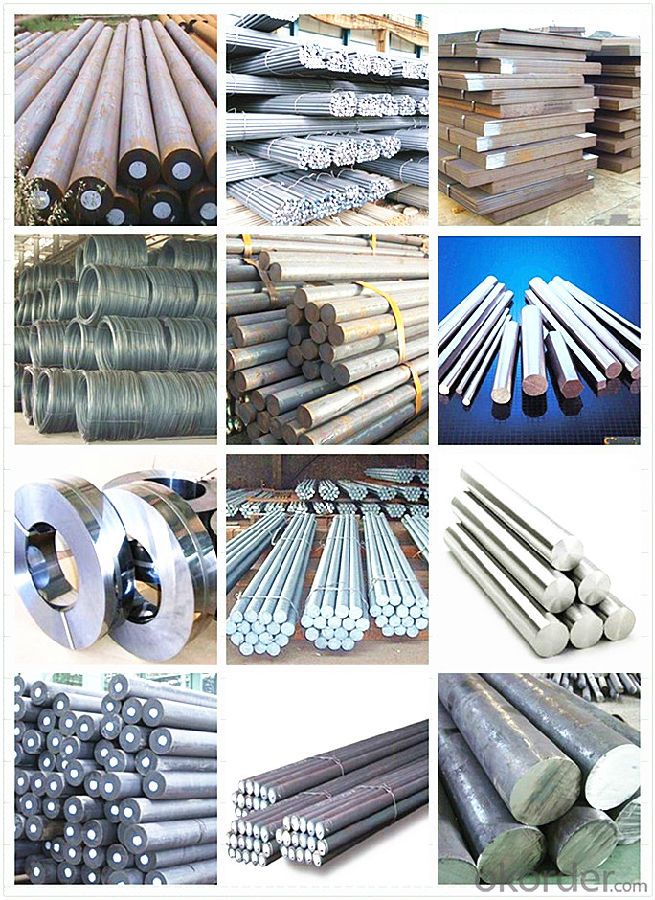
FAQ
Are you a trading company or manufacturer? | Manufacturer |
What’s the MOQ? | 3 metric ton |
What’s your delivery time? | 15-35 days after downpayment received |
Do you Accept OEM service? | Yes |
what’s your delivery terms? | FOB/CFR/CIF |
What's the Payment Terms? | 30% as deposit,70% before shipment by T/T |
Western Union acceptable for small amount. | |
L/C acceptable for large amount. | |
Scrow ,Paybal,Alipay are also ok | |
Why choose us? | Chose happens because of quality, then price, We can give you both. |
Additionally, we can also offer professional products inquiry, products knowledge train (for agents), smooth goods delivery, excellent customer solution proposals. | |
What's your available port of Shipment? | Main Port, China |
What’s your featured services? | Our service formula: good quality+ good price+ good service=customer's trust |
Where are your Market? | Covering more than 160 countries in the world |
- Q: Can special steel be used in the battery manufacturing industry?
- Yes, special steel can be used in the battery manufacturing industry. Special steel, such as stainless steel or nickel-plated steel, can be used for battery casings, terminals, and other components due to its durability, corrosion resistance, and electrical conductivity properties.
- Q: How does special steel contribute to reducing product downtime?
- Special steel contributes to reducing product downtime by offering superior strength, durability, and corrosion resistance compared to regular steel. This allows for the manufacturing of high-performance components that can withstand harsh operating conditions, reducing the likelihood of breakdowns or failures. Additionally, special steel's enhanced wear resistance prolongs the lifespan of products, minimizing the need for frequent replacements or repairs. Overall, the use of special steel in various industries helps to ensure reliable and uninterrupted operation, leading to reduced downtime and increased productivity.
- Q: How does special steel perform in cryogenic wear resistance?
- Special steel is renowned for its outstanding performance in resisting wear and tear in cryogenic environments. When exposed to extremely low temperatures, special steel retains its strength, hardness, and durability, rendering it highly resistant to wearing and friction. This is particularly vital in applications involving cryogenic settings, such as those found in the aerospace industry or in superconductor production. The distinct composition and processing techniques employed in special steel enable it to withstand the challenges posed by cryogenic conditions. It showcases superior toughness, ensuring that it does not become brittle or susceptible to cracking when subjected to low temperatures. Furthermore, the steel's microstructure remains stable, preventing any significant alterations in its mechanical properties when exposed to extreme cold. Moreover, special steel is frequently subjected to various surface coatings or heat treatments to further enhance its resistance to wear. These treatments generate a protective layer or alter the steel's microstructure, thereby reducing the likelihood of wear and prolonging its lifespan in cryogenic environments. To summarize, special steel excels in resisting wear and tear in cryogenic conditions due to its ability to maintain strength, hardness, and durability at extremely low temperatures. Its exceptional toughness, stable microstructure, and potential for surface treatments make it the preferred choice for applications that demand reliable performance in cryogenic settings.
- Q: How does special steel perform in low-temperature environments?
- Special steel, otherwise known as low-temperature steel, has been specifically designed to excel in environments with low temperatures. One of the main advantages of special steel is its exceptional ability to maintain its strength and toughness, even in extremely cold conditions. This is particularly crucial in industries like oil and gas, where equipment and structures are constantly exposed to extreme cold. When regular steel is subjected to low temperatures, it tends to become brittle and lose its mechanical properties, making it susceptible to cracking and failure. However, special steel is formulated with specific alloying elements such as nickel, chromium, and molybdenum, which enhance its performance in low-temperature scenarios. These alloying elements work to prevent the formation of brittle phases, allowing the steel to retain its toughness and ductility, even at sub-zero temperatures. Special steel finds extensive usage in cryogenic applications, where temperatures can plummet as low as -196 degrees Celsius (-320 degrees Fahrenheit). It is commonly employed in the construction of cryogenic storage tanks, liquefied natural gas (LNG) carriers, and other components that come into contact with extremely cold fluids or gases. In low-temperature environments, special steel not only maintains its mechanical properties but also exhibits remarkable resistance against corrosion. This is particularly crucial since low temperatures can exacerbate corrosion issues in many materials. The high nickel content present in special steel contributes to its corrosion resistance by forming a protective oxide layer that prevents the steel from corroding, even in harsh conditions. Overall, special steel has been purposefully engineered to withstand the challenges presented by low-temperature environments. Its ability to preserve strength, toughness, and corrosion resistance makes it an ideal choice for various industries that operate in extreme cold conditions.
- Q: How does special steel contribute to the manufacturing of precision components?
- Special steel plays a crucial role in the manufacturing of precision components by offering superior strength, durability, and resistance to wear and corrosion. Its unique properties allow for the production of complex and intricate parts that require high levels of precision and accuracy. Additionally, special steel often exhibits excellent machinability, enabling manufacturers to achieve tight tolerances and fine finishes. Overall, special steel enhances the performance and reliability of precision components, making it an essential material in the manufacturing industry.
- Q: What are the different tooling grades of special steel?
- Special steel is a category of steel that has been designed and manufactured to possess specific characteristics or properties, making it well-suited for various industrial applications. Within special steel, there are different tooling grades available, each with its own unique composition and properties. These grades are specifically engineered to meet the demands of different tooling applications, ensuring optimal performance and durability. Some common tooling grades of special steel include: 1. High-Speed Steel (HSS): HSS is a type of tool steel that exhibits excellent hardness, wear resistance, and heat resistance, making it ideal for high-speed cutting tools such as drills, milling cutters, and taps. It retains its hardness even at elevated temperatures, enabling it to maintain cutting performance without losing its edge. 2. Hot Work Tool Steel: Hot work tool steel is designed to withstand high temperatures and thermal cycling encountered in applications such as hot forging, die casting, and extrusion. It possesses good toughness, high heat resistance, and excellent wear resistance, allowing it to retain its strength and shape even under extreme thermal conditions. 3. Cold Work Tool Steel: Cold work tool steel is primarily used for cutting and forming applications at lower temperatures. It exhibits a high level of hardness, toughness, and wear resistance, making it suitable for applications such as blanking, shearing, and cold forming. Cold work tool steel maintains its hardness even under compressive forces, ensuring long-lasting performance. 4. Plastic Mold Steel: Plastic mold steel is specifically designed for the production of plastic injection molds and related tooling. It possesses excellent machinability, high polishability, and good wear resistance, allowing it to withstand the demanding conditions encountered during plastic molding processes. Plastic mold steel ensures precise and high-quality molding performance. 5. Powder Metallurgy (PM) Steel: PM steel is a tooling grade that is manufactured using a powder metallurgy process. This method allows for the production of complex shapes, uniform microstructure, and improved properties. PM steels are commonly used in high-performance cutting tools, wear-resistant parts, and high-strength applications. These are just a few examples of the different tooling grades available in special steel. Each grade is carefully engineered to meet the specific requirements of various tooling applications, ensuring optimal performance, durability, and efficiency in different industrial sectors.
- Q: Can special steel be used for aerospace engine components?
- Yes, special steel can be used for aerospace engine components.
- Q: How does special steel resist oxidation?
- Special steel resists oxidation due to the presence of alloying elements, such as chromium, that form a protective layer of chromium oxide on the surface of the steel. This layer acts as a barrier, preventing oxygen from reaching the underlying steel and thus inhibiting the oxidation process.
- Q: What are the different methods for quenching special steel?
- Achieving the desired mechanical properties and improving the hardness and strength of special steel requires a critical step in the heat treatment process known as quenching. There are several methods available, each with their own advantages and considerations. One commonly used method is oil quenching, where the steel component is submerged in oil to act as a cooling medium. This provides a moderate cooling rate, allowing for controlled and uniform hardening. It is suitable for a wide range of steel grades and helps prevent cracking or distortion. Water quenching, on the other hand, is a faster cooling method compared to oil quenching. It extracts heat rapidly, resulting in higher hardness and strength. However, the high cooling rate can increase the risk of cracking or distortion, especially with thicker sections. Water quenching is commonly used for low-alloy steels and some high-alloy steels. Polymer quenching involves using a specialized polymer solution as the cooling medium. This method offers a controlled cooling rate, striking a balance between the slower oil quenching and faster water quenching. It is particularly suitable for steels with complex shapes or critical dimensions, as it reduces the risk of distortion and cracking. Air quenching, on the other hand, is a slower cooling method that allows the steel component to cool in ambient air. It is typically used for steels with lower hardenability, providing a more gradual cooling rate. While it helps reduce the risk of distortion and cracking, it may result in lower hardness and strength compared to other quenching methods. Finally, salt bath quenching involves immersing the steel component in a molten salt bath as the cooling medium. This method provides a controlled and uniform cooling rate, minimizing the risk of distortion and cracking. It is particularly suitable for complex-shaped or delicate parts, as it reduces thermal stress during cooling. It is important to consider various factors, such as steel grade, desired hardness, component size and shape, and required mechanical properties when choosing a quenching method. Proper selection and implementation of the method are crucial to achieving the desired material characteristics and ensuring the overall quality of the special steel product.
- Q: What are the properties of electrical steel?
- Electrical steel, also known as silicon steel or transformer steel, possesses several key properties that make it suitable for various electrical applications. Firstly, it exhibits low core loss, meaning it has a low tendency to dissipate energy in the form of heat when subjected to alternating magnetic fields. This property is crucial for efficient power transmission and distribution. Additionally, electrical steel demonstrates high magnetic permeability, enabling it to efficiently conduct and amplify magnetic flux, essential for transformers and other electrical devices. Furthermore, it has a high electrical resistivity, allowing it to minimize eddy current losses, which occur when currents circulate within the material. Lastly, electrical steel exhibits high saturation flux density, making it capable of handling high magnetic fields without reaching its magnetic saturation point. Overall, these properties make electrical steel an ideal material for power generation, transformers, motors, and other electrical equipment.
Send your message to us
Cheaper Price HR Steel Coil S235JR_Strips with High Quality
- Loading Port:
- Tianjin
- Payment Terms:
- TT OR LC
- Min Order Qty:
- 25 m.t.
- Supply Capability:
- 10000 m.t./month
OKorder Service Pledge
OKorder Financial Service
Similar products
Hot products
Hot Searches
Related keywords
